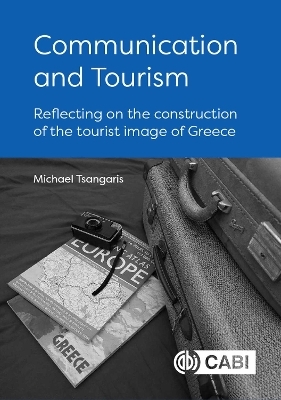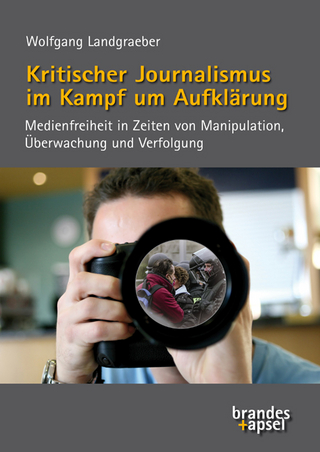
Communication and Tourism
CABI Publishing (Verlag)
978-1-80062-601-0 (ISBN)
The nexus of human mobility and communication is intricate, and this volume uncovers the deep-rooted significance of tourism and media . From antiquity to modern day, Western communication systems have artfully crafted the allure of destinations, making places irresistible to the travellers. At its core, this book proposes that the impetus for travel is a primal human necessity, rooted in our inherent need for movement, consciousness expansion, and cultural development. Featuring Greek civilization as a case study, the book reveals how the rich cultural capital of modern Greece, long admired and assimilated by many global cultures, has immensely contributed to Greece's contemporary tourism "imaginary". Readers are challenged to look beyond prevailing practices where tourism management and marketing are the driving force for commercial exchange, but to encompass its broader essence as a vital human function, leading to richer experiences. Drawing on theory from communication studies, social psychology, social anthropology, cultural and tourism studies the book is: · an historical panorama, exploring how communication has continually influenced the allure of tourist destinations · an overview of philosophical essence of tourism as a basic human need intertwined with consciousness expansion. · written in an engaging style to stimulate thought in current issues around the tourism industry It will be of interest to academics within areas related to tourism studies, mobility studies, mass media, communication and cultural studies.
Michael Tsangaris is a member of the Laboratory and Teaching staff at the Department of International and European Studies, University of Piraeus. He received his PhD from the Department of Communication and Media Studies of the National and Kapodistrian University of Athens, Greece, his MA degree in Mass Media and Communications from the University of Leeds, U.K. and his Ptychion from the Department of Business Administration of the Economic University of Athens, Greece. His research interests focus on issues related to mass media, tourism, gender, culture, and society.
INTRODUCTION: Introduction PART ONE: CONCEPTUAL FRAMEWORK 1: TOURISM COMMUNICATION 2: HISTORICAL PERSPECTIVE ON HUMAN MOBILITY AND TOURISM 3: EXPLORING THE ESSENCE OF TOURISM IN ITS DEFINITIONS AND INTERPRETATIONS 4: CULTURE AND TOURISM 5: THEORIES OF MASS MEDIA EFFECTS AND MASS TOURISM 6: REVEALING THE COMPLEX WORLD OF TOURISM IMAGERY PART TWO: MEDIA AND TOURISM 7: PAINTING AND TOURISM 8: LITERATURE AND TOURISM 9: TOURISM, PHOTOGRAPHY, PRESS, POSTERS AND OTHER MEDIA 10: MEDIA WITH DYNAMIC MESSAGES 11: NEW DIGITAL MEDIA AND TOURISM PART THREE: MEDIA AND TOURISM IN GREECE 12: TRAVELLING IN THE ANCIENT WORLD 13: TRAVEL IN ROMAN EMPIRE AND BYZANTIUM 14: THE RENAISSANCE, ENLIGHTMENT AND THE TOURS IN GREECE 15: THE FOUNDATION OF THE GREEK STATE 16: TOURISM ENTERS THE GREEK WORLD AS AN ECONOMIC ACTIVITY 17: THE PHENOMENON OF MASS TOURISM IN GREECE 18: THE NEW FACE OF TOURISM IN GREECE CONCLUSIONS: Conclusions
| Erscheinungsdatum | 01.06.2024 |
|---|---|
| Verlagsort | Wallingford |
| Sprache | englisch |
| Maße | 172 x 244 mm |
| Themenwelt | Sozialwissenschaften ► Kommunikation / Medien ► Journalistik |
| Wirtschaft | |
| ISBN-10 | 1-80062-601-0 / 1800626010 |
| ISBN-13 | 978-1-80062-601-0 / 9781800626010 |
| Zustand | Neuware |
| Informationen gemäß Produktsicherheitsverordnung (GPSR) | |
| Haben Sie eine Frage zum Produkt? |
aus dem Bereich


